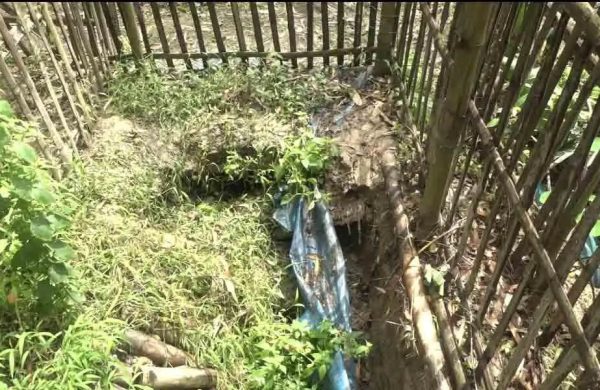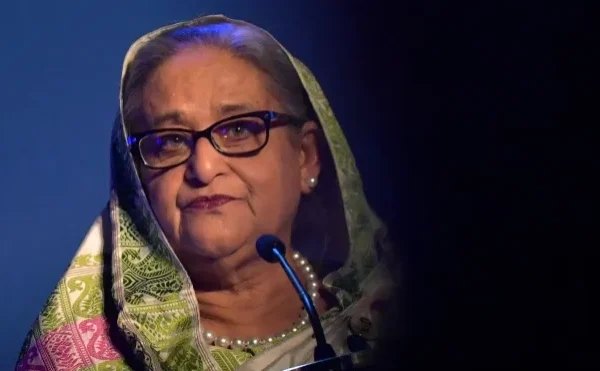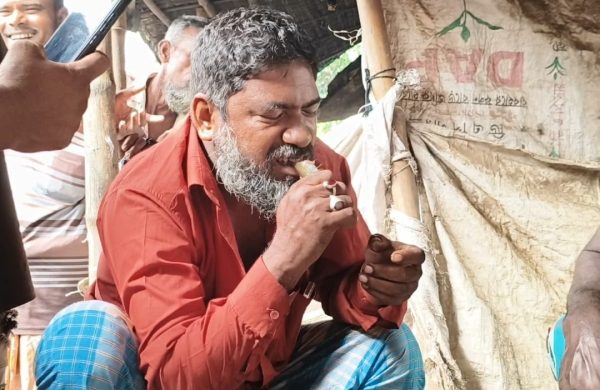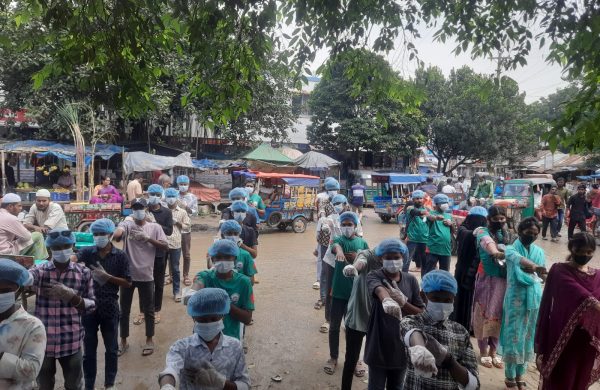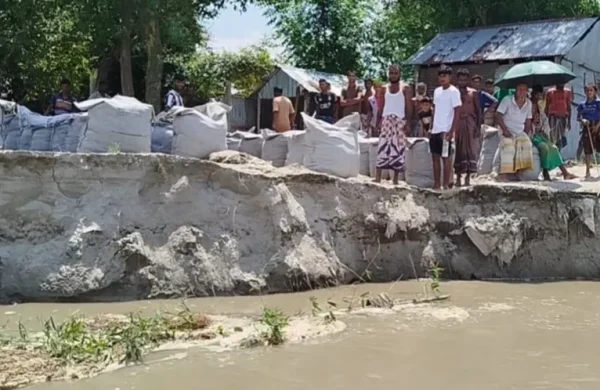Farmers in Tangail are shifting from rice to tobacco
- Update Time : Friday, January 24, 2025
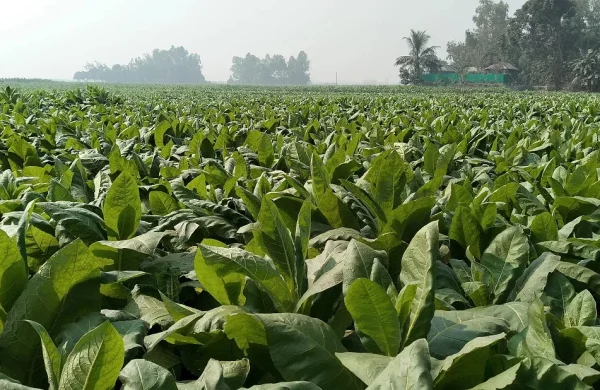
Tangail Correspondent
Farmers in Tangail are transitioning from cultivating rice to tobacco due to higher profitability and changing market demands.
In the past, various crops, including rice, were grown in the char areas of the Jamuna River in Tangail. In the 1990s, much of the land was lost to river erosion.
However, two years ago, the char began to emerge again.
Despite regaining fertile land, farmers in the char regions have not returned to rice farming.
Lured by multinational tobacco companies, farmers are now increasingly adopting tobacco cultivation.
The companies offer attractive prices and various forms of assistance, which have led to the growth of tobacco farming.
Even though they are aware of the severe health risks associated with tobacco cultivation, such as mouth cancer, high blood pressure leading to strokes and heart attacks, as well as its detrimental impact on the environment, soil quality, and biodiversity, farmers continue to engage in tobacco farming in hopes of higher earnings.
The excessive use of fertilizers and pesticides in tobacco farming is reducing soil fertility and causing severe damage to biodiversity and the environment.
Multinational companies like British American Tobacco Company Limited, Japan Tobacco Company Limited, Abul Khair Tobacco Company, Bengal Tobacco Company, Global Tobacco Company, and Tara Tobacco Company are encouraging local farmers to grow tobacco in Tangail.
These companies provide various forms of support before and after the tobacco farming season, including cash loans, seeds, fertilizers, and regular monitoring.
The good prices for tobacco and the provision of loans, fertilizers, and technical support have made tobacco cultivation more appealing, despite the health risks.
The high costs of alternative crops and the uncertainty of fair prices have also pushed many farmers toward tobacco farming.
Although the government passed the “Tobacco Products (Control) Act 2005 (Amended in 2013)” to discourage tobacco farming, there is little field-level action from the government.
Tobacco cultivation is spreading across the horizon in various regions of Tangail, including Gobindasi, Nalsha, Jagatpura, Bamanhata, Char Nikla, Nikrail, Palima, Amula in Bhuapur Upazila; Salla, Deupur, Char Hamzani, Kadim Hamzani, Potol, Bery Potol, Joker Char, Gohaliabari, Kurshabenu, Salil Gobindapur, Afzalpur Dhalatengar in Kalihati Upazila; Kakua, Hugra, Katuli, Mamud Nagar, Char Pauli, in Tangail Sadar Upazila; Lauhati in Delduar Upazila; Pakutia, Bhadra, Bekra, Atapara, Salimabad, Dhuburia, Mokna, Bangram, Shahjani in Nagarpur and surrounding areas.
In the Tangail district, the highest amount of tobacco is being cultivated in the Kalihati and Bhuapur upazilas.
According to local farmers, tobacco is being grown on several thousand acres of farmland, particularly in the villages of these riverine areas.
The main reasons for tobacco cultivation include the negligence of the agricultural department, the activities of tobacco companies, assured sales, interest-free loans for cultivation, and regular field visits and advice from company representatives.
Experts believe that if the activities of tobacco companies are not halted, farmers will increasingly turn to tobacco farming due to the lure of profit.
According to sources from the Tangail Department of Agricultural Extension, tobacco is being cultivated on 233 hectares of land across five upazilas in Tangail district this year.
Of this, 115 hectares are in Bhuapur, 90 hectares in Kalihati, 7 hectares in Nagarpur, 3 hectares in Delduar, and 18 hectares in the Sadar upazila.
Local farmers like Rahim, Mizan, Khokon, and Chobur in Maishanandlal village in Tangail’s Sadar upazila have cultivated tobacco on 110 bighas (about 3,630 decimals) of land, receiving loans of nearly Tk3 lakh from the British Tobacco Company.
Despite the costs of fertilizers and other inputs, they anticipate a profit of around Tk16.5 lakh, which would not be possible from other crops.
Farmers like Azhar Ali from Hugra Union and Hasanul from Kalihati also report significant profits from tobacco farming, with companies providing transportation and payments directly to their bank accounts.
In this regard, Professor Dr ASM Saifullah of the Environmental Science and Resource Management (ESRM) department at Maulana Bhashani Science and Technology University said: “Just as tobacco consumption is harmful to health, the production of this harmful substance is also depleting our agricultural land and forests, which has a significant negative impact on the environment.
“The beneficial insects, microorganisms, and soil health in the land where tobacco is grown are adversely affected, leading to a reduction in the land’s productivity. The leftover parts of tobacco products like bidis and cigarettes pollute the soil, water, and air, spreading toxins through the food chain,” he added.
He also said: “Additionally, nicotine from tobacco causes various diseases in the human body, including lung cancer.”
In this regard, Ashek Parvez, the Deputy Director of the Tangail Department of Agricultural Extension, said: “Farmers are cultivating tobacco in the hope of extra profit, falling into the trap of company greed.”
He added: “We are organizing awareness meetings among farmers about the loss of soil fertility and health risks, as well as holding courtyard meetings to discourage tobacco cultivation. The incentives available in the agricultural sector are being provided to the farmers regularly.”


